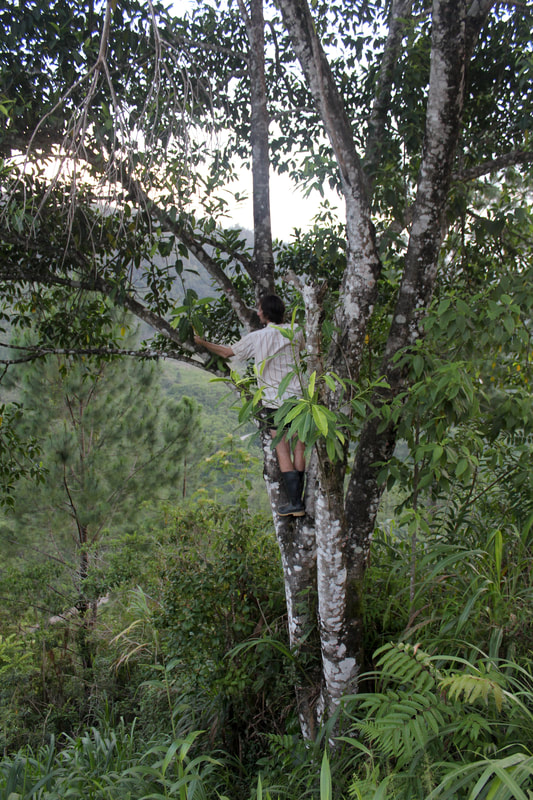Researching palaeohydrology and the ways that humans responded to climatic and environmental change in the past can provide reference points and insights for contemporary and future responses to anthropogenic environmental change.
What are your undergraduate and graduate degrees in?
MGeol Geological Sciences
PhD Biogeochemistry
How did you arrive at working in/thinking about ecohydrology?
I am researching changing vegetation and climate in Central America using isotope analyses of plant wax n-alkanes. The lowland Maya people are thought to have abandoned their population centres as a result of drought. I think about the interactions between water and ecological systems in the past, today and in the future. For a proxy calibration project I collected well waters from residential buildings in Mexico, Belize and Guatemala and loved getting to talk about water access and quality, and getting to know the people living there. I like swimming in lakes and I want people to enjoy clean water.
What do you see as an important emerging area of ecohydrology?
Looking at human and non-human interactions in the past can be an interesting lens through which we can look at approaches to contemporary questions, including ecohydrological ones. The novel application of proxies to lake sediments, for example, reveals changes in vegetation, water availability, demography, and fire-use over thousands of years. “Where archaeology cannot go…..”
Do you have a favorite ecohydrology paper? Describe/explain.
I like papers that use novel approaches to solving problems, especially problems of understanding the past… “Not a bathtub: A consideration of sea-level physics for archaeological models of human migration,” a paper by Marisa Borreggine in the Journal of Archaeological Science looks at reconstructing past sea level to better understand how people interacted with landscapes and human migration in the past.
What do you do for fun (apart from ecohydrology)?
I enjoy eating and cooking for friends, gardening, and jazz. I also like to stretch my legs…..i’ve spent the past few years tour biking all over the beautiful province of Québec, where the people and the bike paths are like nowhere else. Quel plaisir!

 RSS Feed
RSS Feed